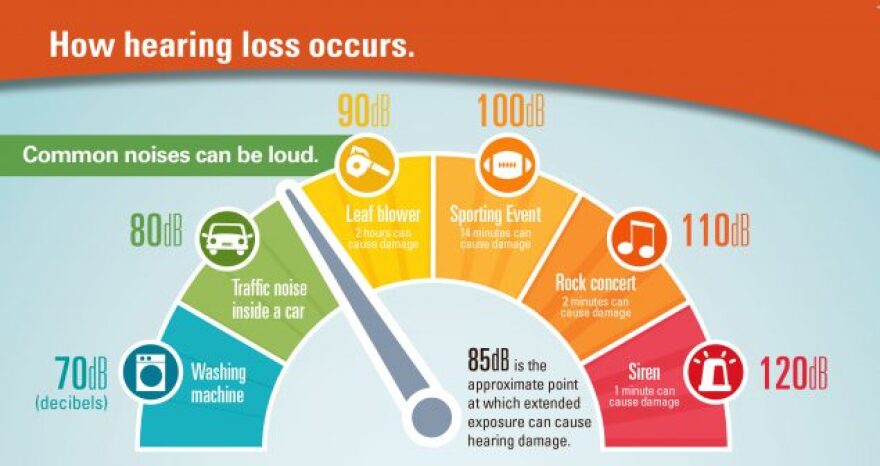UPPER MACUNGIE TWP., Pa. — A new noise law in the township will need more work.
Upper Macungie Board of Supervisors on Thursday discussed a new noise ordinance for the township.
But supervisors disagreed on exactly how the new ordinance should be enforced — and who should have to follow it.
Supervisors voted 2-1 to revise the draft. In the new version, existing businesses would be “grandfathered in,” meaning they would not have to follow the new rules.
Board Vice Chairman Sunny Ghai cast the dissenting vote, saying existing businesses should follow the new rules.
In the new version, the sound would be measured at the property from where the noise is coming, rather than the property of the resident who complained.
Ghai said he agreed with the change.
Several residents who were at the meeting to comment on the ordinance said some industrial buildings in the township are making too much noise.
Supervisors will discuss the revised draft at its next meeting, at 7 p.m. Oct. 3.
What would change?
Upper Macungie’s current noise ordinance has separate standards for the industrial and residential sections of the township.
In the residential district, the noise level can be a maximum of 70 decibels during the day and 65 dB at night, with exceptions, such as emergency sirens.
In the industrial district, the maximum noise level at any time is 75 dB.
The new noise ordinance would lower the maximum noise level in the residential district to 65dB during the day and 50 dB at night, and would lower the maximum to 65 dB at all times for the industrial district.
It would allow “impulsive sounds,” or sounds that last for short durations, such as fireworks or revving an engine, to be up to 80 dB.
According to the National Institutes of Health, noise at 70 dB or below is generally safe, but long or repeated exposure to noise over 85 dB may cause hearing loss.

Both the current and new ordinances have exceptions to those rules for noises such as emergency sirens, backup generators and agricultural activities.
Residents also would be allowed to use lawnmowers even if they were louder than 65 dB, as long as they are operated between 7 a.m. and 10 p.m.
The new ordinance states that any person found guilty of violating it “shall be fined not less than $250.00 for the first offense, and not less than $500.00 for any subsequent offenses.”
If that person does not pay the fine, he or she would be sentenced to jail “for a term not to exceed 30 days for each offense.”
The original draft would not grandfather existing businesses in, meaning they would have had to follow the new rules.
Conflict among supervisors
Supervisor James Brunell said he is not sure the change is needed. There have been only 11 noise complaints to the township in the past three years.
“I'm conflicted a little bit with what we're doing, and I'm not sure we had a serious issue in the first place,” Brunell said.
Brunell also said he thought existing businesses should be grandfathered because they are compliant with current laws.
“I'm not sure how fair it is to have that change overnight,” Brunell said.
Daniel Rowley, an attorney representing industrial park developer Prologis, agreed.
“There are businesses in the township that were made to show compliance with the 75 decibels, and now, without any changes to their business, would be prohibited from conducting their business as they have for either years or decades,” Rowley said.
But Ghai said he wanted those businesses to try to mitigate noise, as long as it is economically reasonable to do so without changing its operations.
“It is also about the quality of life of our residents,” Ghai said.
“We need to find a middle ground, and it doesn't drive you out of business, as you stated, it just basically provides some abatement so that you can address the issue.”
"Until we actually throw it out in the wild, see what happens and how it affects the quality of life of residents, we're not going to know the answer to that.”Board Chairman Jeff Fleischaker
Board Chairman Jeff Fleischaker said the township can’t know what will work until it is implemented.
“We can probably sit here for another six months to six years, trying to perfect the language of it,” Fleischaker said.
“But until we actually throw it out in the wild, see what happens and how it affects the quality of life of residents, we're not going to know the answer to that.”
Fleischaker said the board can revise the law if it doesn't work.


